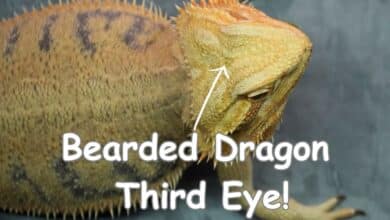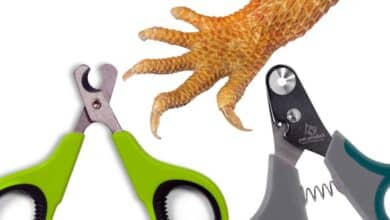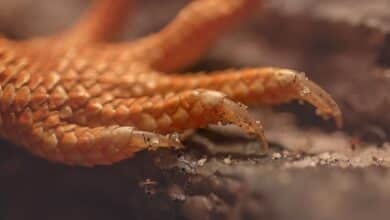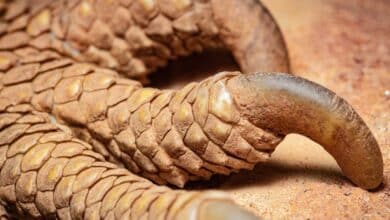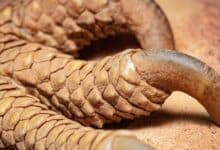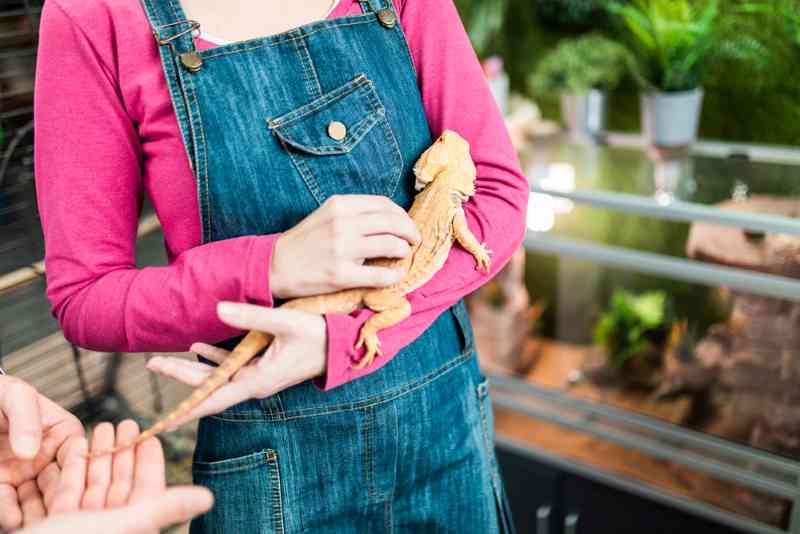Freeze-Dried Mealworms For Bearded Dragons: Are They Healthy?

Bearded dragons are exotic lizards that are native to Australia. In the wild, they primarily eat insects, so it is important to replicate this diet when keeping them as pets. Live mealworms are often fed to beardies, as they are a good source of protein and other nutrients. However, some people prefer to feed their beardies dried mealworms.
Dried mealworms have a longer shelf life than live ones, and they can be stored in a cupboard or pantry. They are also less messy than live mealworms, as there is no need to worry about them escaping and crawling around the house. However, some experts believe that live mealworms are a better option for beardies, as they provide more exercise and stimulation.
What type of mealworm you feed your bearded dragon is ultimately up to you, but it is important to do your research to make sure that your pet is getting the nutrients it needs.
Contents
Benefits of Feeding Bearded Dragon Dried Meal Worms
Bearded dragons are omnivorous pets that enjoy a diet of both vegetables and meat. While live insects are usually the preferred protein source, dried mealworms can be a healthy and convenient alternative. Here are just a few of the benefits of feeding bearded dragons dried mealworms:
Dried mealworms are an excellent source of protein, which is essential for bearded dragon growth and development. In addition, they are a good source of fat and essential vitamins and minerals.
Dried mealworms are easier to store than live insects, and they have a longer shelf life. This makes them a convenient option for busy pet owners who may not have time to go to the pet store every week.
Dried mealworms can be fed as a treat or mixed into other foods to create a more balanced diet. This makes them a versatile option for finicky eaters who may not be interested in live insects.
Overall, dried mealworms are a healthy and convenient option for bearded dragons. They are an excellent source of protein and essential nutrients, and they can be easily stored and mixed into other foods. If you are looking for an alternate protein source for your pet, dried mealworms are definitely worth considering.
Disadvantages of Feeding Bearded Dragon Freeze-Dried Mealworms
While there are some advantages to feeding bearded dragons dried mealworms – such as the fact that they are a good source of protein – there are also several disadvantages to consider. One of the biggest disadvantages is that dried mealworms can be difficult for bearded dragons to digest.
This is because they are high in chitin, which is a hard-to-digest substance. As a result, feeding your bearded dragon too many dried mealworms can lead to digestive problems.
Another disadvantage is that dried mealworms can be a choking hazard. This is because they are small and hard, and if your bearded dragon tries to eat them whole, they could get stuck in their throat.
Finally, dried mealworms can be expensive, so if you’re on a budget, you may want to look for another food source for your bearded dragon.
How Dong Do Dried Meal Worms Stay Edible?
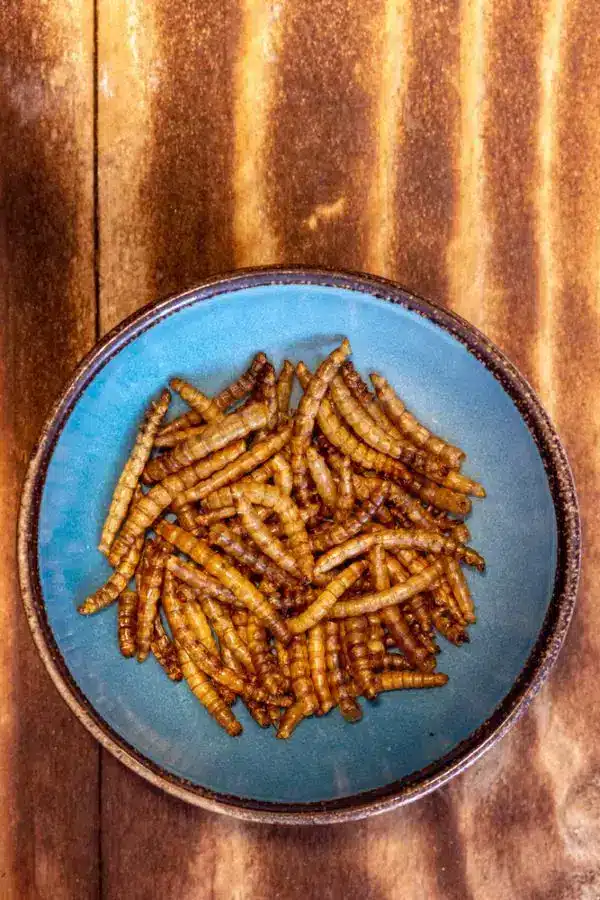
Dried mealworms have a high protein and fat content, and they are a good source of vitamins and minerals. But how long do dried mealworms stay edible?
Dried mealworms will remain edible for up to two years if they are stored in a cool, dry place. However, they will lose some of their nutritional value over time. If you want to extend their shelf life, you can store them in the freezer. Frozen mealworms will remain edible for up to five years.
Dried mealworms are a nutritious option. Just make sure to store them properly to keep them fresh and tasty for as long as possible.
Are Dried Meal Worms as Nutritious as Live Meal Worms?
A lot of people think that dried mealworms are not as nutritious as live mealworms. The reason for this is that when mealworms are dried, they lose a lot of their moisture content. This means that they have a lower water content and a higher fat content.
This can make them less nutritious for your reptile or amphibian. another reason why people think that dried mealworms are not as nutritious as live mealworms is because they are often treated with preservatives. These preservatives can make the dried mealworms less nutritious for your reptile.
Finally, some people think that the process of drying mealworms removes some of the nutrients from the mealworms. However, there is no scientific evidence to support this claim. In fact, many experts believe that the process of drying actually preserves the nutrients in the mealworms.
Benefits of Feeding Your Bearded Dragon Live Meal Worms
Live mealworms offer a number of benefits for your bearded dragon. For one thing, they are an excellent source of protein, which is essential for growth and development. In addition, live mealworms are packed with nutrients like calcium and vitamin A. They also provide your bearded dragon with a much-needed source of moisture.
When selecting live mealworms for your bearded dragon, it is important to choose a reputable supplier. Look for worms that are healthy and active. Avoid worms that are lethargic or have darkened brown spots.
Also, be sure to buy worms that are the appropriate size for your bearded dragon. Smaller worms are easier to digest and less likely to cause impaction.
When feeding live mealworms to your bearded dragon, it is best to offer them in moderation. A few worms per day should be plenty. In addition, be sure to supervise your pet while they are eating to prevent them from overeating or swallowing too many at once.
Disadvantages of Live Meal Worms
Feeding your bearded dragon live mealworms may seem like a good idea, but there are actually several disadvantages to doing so. For one thing, live mealworms can be quite a hassle to keep alive. You need to maintain a proper habitat for them, and they need to be fed and watered on a regular basis.
Additionally, if your bearded dragon escapes its enclosure, the live mealworms could end up anywhere in your home – including in your bed!
Another downside to feeding live meal worms is that they can sometimes carry diseases. While the risk of your bearded dragon contracting a disease from a live worm is relatively low, it’s still something to consider.
Finally, live mealworms are simply not as nutritious as other food options for bearded dragons. If you want to give your bearded dragon the best possible diet, stick to dried insect larvae, pellets, and vegetables.
How to Get Bearded Dragons to Like Dried Meal Worms?

There are a few things you can do to encourage your bearded dragon to try dried mealworms. First, make sure the mealworms are a suitable size for your dragon. If they are too big, your dragon may be intimidated by them. It is also important to offer the mealworms in a way that is easy for your dragon to access.
Many owners like to place them on a piece of lettuce or another soft leafy vegetable. Finally, be patient! It may take your dragon a little time to warm up to the idea of eating dried mealworms, but with a little effort, you’ll eventually get them to try them!
Can Bearded Dragons Survive Only on Dried Meal Worms?
Many people who own bearded dragons ask if they can survive on a diet of only dried mealworms. The answer is no, they cannot.
While mealworms are an excellent source of protein, they lack many of the other nutrients that bearded dragons need to stay healthy. In particular, they are low in calcium and other minerals, which can lead to problems like metabolic bone disease.
In addition, mealworms contain chitin, which is difficult for bearded dragons to digest. For these reasons, it is important to supplement a diet of dried mealworms with other foods such as vegetables, fruits, and live insects.
By providing a variety of food items, you can ensure that your bearded dragon gets all the nutrients it needs to stay healthy and thrive.
How Many Meal Worms Do You Feed Bearded Dragons at a Time?
The number of mealworms you feed your bearded dragon at a time will depend on the size of the mealworms and the size of your bearded dragon.
For example, if you have a baby bearded dragon, you would not want to feed them large mealworms. It’s important to consult with a veterinarian to find out how many and what size mealworms are appropriate for your bearded dragon’s age and size.
In general, it’s safe to say that you can feed your bearded dragon 10-20 small to medium-sized mealworms at a time. If you’re feeding them larger mealworms, you can reduce the number to 5-10. As always, it’s best to err on the side of caution and start with less food and increase as needed.
Mealworms are a great source of protein for your bearded dragon, but they should not be the only food they eat. Be sure to include other insects and vegetables in their diet as well.
